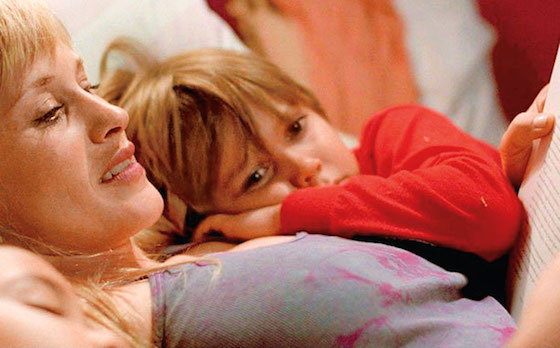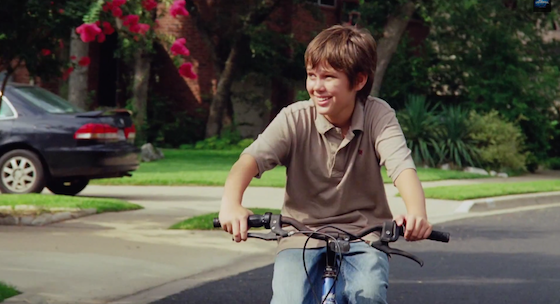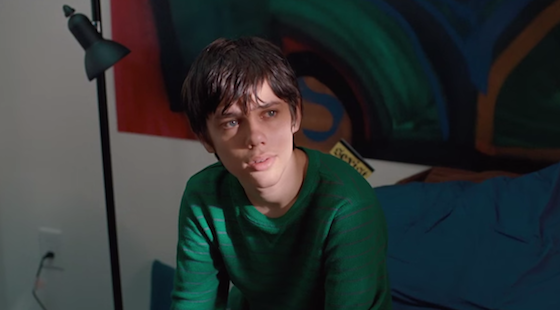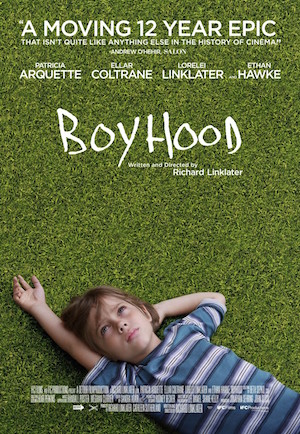Boyhood is the culmination of Richard Linklater’s cinematic growth. His surrealist look at Austin subculture, the generational exploration in Dazed and Confused, the wandering of a relationship that shouldn’t have lasted more than a night, Linklater’s ability to get the camera’s rolling then just see what happens, pays off in his biggest gamble to date.
Richard Linklater has never been tied to a punchy formula for his narrative features. From Slacker, which hardly tells a story at all, to the Sunrise films, which meander with the characters they follow, Linklater plays fast and loose with his story, preferring instead to focus on exploring emotional moments.
Because of his approach, Linklater is a refreshing alternative for some. He rarely offers pat answers to those unanswerable question that each of us face, questions of existence or the right or wrong way to grow up, grow old. Other viewers might find that Linklater’s direction seems to purposefully avoid making a definitive statement. His characters often do nothing, except live their lives, which can seem uninteresting and boring to some.
 Boyhood follows Mason (Ellar Coltrane), as he grows from a child in elementary school to his entrance into college. Surrounding Mason are a sister, Samantha (Lorelei Linklater), his single mother (Patricia Arquette) who struggles to finish her degree and work while caring for her children, and a fun loving absentee father (Ethan Hawke).
Boyhood follows Mason (Ellar Coltrane), as he grows from a child in elementary school to his entrance into college. Surrounding Mason are a sister, Samantha (Lorelei Linklater), his single mother (Patricia Arquette) who struggles to finish her degree and work while caring for her children, and a fun loving absentee father (Ethan Hawke).
Shot over 12 years, Boyhood shows Mason and Samantha grow into proto-adults, and shows the mother and father age and fight for some acceptance of their inadequacies and achievements. Things happen throughout Mason’s journey, from being bullied to underage drinking, minor vandalism to teenage relationships, but none of these individual moments define Mason completely. At the end of the film, the viewer cannot look back and say, “Ah, he’ll be okay because…” or, “If he’d only made a different decision when…”
 Linklater does not care about defining childhood and the emergence into adulthood as some stupid reductive thing. Instead he chooses to show a character who does what most of us do, experiments with recklessness, tries often to do what is right, fails, struggles, tries again. Even the parents offer little guidance, because they too are making it up as they go along.
Linklater does not care about defining childhood and the emergence into adulthood as some stupid reductive thing. Instead he chooses to show a character who does what most of us do, experiments with recklessness, tries often to do what is right, fails, struggles, tries again. Even the parents offer little guidance, because they too are making it up as they go along.
Much has been made of how Linklater made this film, shooting with the same cast over 12 years, and the discussion is important but only in that it shows the unflinching and uncompromising approach of a filmmaker that truly understands themselves within their medium.
 What is more stunning to me is the coherence of the story. Because Linklater posits questions instead of answering them, he can show us a boy growing up and make us think that perhaps everyone goes through similar experiences. Perhaps the questions we face, not the answers, are the things that tie us together.
What is more stunning to me is the coherence of the story. Because Linklater posits questions instead of answering them, he can show us a boy growing up and make us think that perhaps everyone goes through similar experiences. Perhaps the questions we face, not the answers, are the things that tie us together.








{ 3 comments }
Great review, Trey. I loved this movie so much and I think I love Linklater films because they beg for reflection and there’s no definitive answer or opinion, as you wrote. Especially with the Before… films in which everybody watches those two distinct characters (they’re not universal, but why do they feel like they are sometimes? Just like Mason…) and comes out with different opinions on them though none are wrong. I watched Before Midnight with my husband a few months ago and kept stopping and starting the movie to discuss what was happening between them, and maybe about our own marriage, too. Even though we’ve never been to Greece and both of us are American and we don’t have children and… well, we still understand. Boyhood felt similar, in that I didn’t grow up a boy in Texas with divorced parents, but Linklater put something up on that screen that I recognized, that I could understand in my own experience growing up.
Jessica,
Awesome comment. I totally agree with you about the specific/universality of his films. I’m ready to watch it again.
Great work, Trey – you nailed it. I just saw this last night, and I couldn’t agree with your points more.
Comments on this entry are closed.